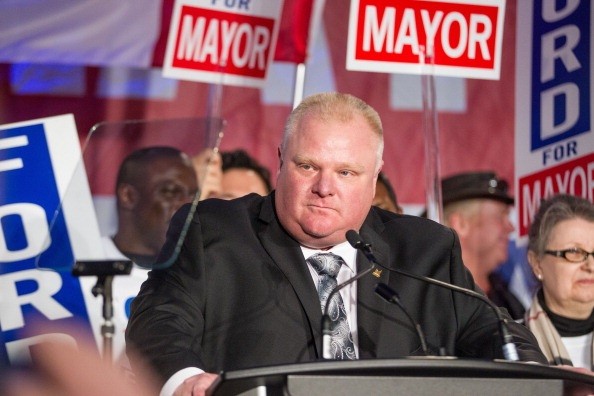Rob Ford at a Glance
- Categories: Politicians, Politicians > Republicans
- Net Worth: $50 Million
- Birthdate: May 28, 1969 - Mar 22, 2016 (46 years old)
- Birthplace: Etobicoke
- Gender: Male
- Profession: Politician
- Nationality: Canada
Rob Ford’s Net Worth: A Look at the Life and Legacy of the Controversial Politician
Introduction: The Enigmatic Rob Ford
Rob Ford was a prominent figure in Canadian politics, best known for his tenure as the 64th mayor of Toronto from 2010 to 2014. His time in office was marked by a unique blend of populist appeal, controversial behavior, and ultimately, a tragic end. This article delves into the life, career, and financial standing of Rob Ford, exploring his early life, political ascent, the scandals that defined his mayoralty, and his eventual battle with cancer.
Early Life and Business Ventures
Born on May 28, 1969, in Etobicoke, Ontario, Rob Ford was the youngest of four children. His parents were Ruth Diane and Douglas Ford. The Ford family’s wealth originated from Deco Labels and Tags, a successful multinational printing and labeling business founded by Rob’s father. The business generated an estimated $100 million in annual revenues, significantly contributing to the Ford family’s affluence. Rob Ford’s net worth was estimated to be $50 million at the time of his death in 2016.
Ford attended Scarlett Heights Collegiate Institute, where he played football, aspiring to a career as a professional athlete. He later studied political science at Carleton University, though he did not complete his degree. After leaving university, he joined Deco Labels, eventually becoming a director alongside his mother and brothers after his father’s passing in 2006.
Toronto City Councillor and Mayor
Rob Ford’s foray into politics began in 1997, though he lost his initial bid for Toronto City Council. He persevered, building support within the community and successfully ran for the council in 2000, defeating the incumbent Elizabeth Brown with an endorsement from the “Toronto Star.” He served as a city councillor from 2000 to 2010, establishing a reputation for passionate speeches and dramatic actions.
Ford’s political platform was largely focused on fiscal conservatism. He was a vocal critic of council spending, opposing large government budgets and tax increases. He advocated for reduced spending and targeted what he perceived as wasteful perks for city officials. His direct approach often led to heated exchanges with other councilors, and he was accused of making racist remarks on several occasions. However, he also gained a reputation for being highly responsive to his constituents, often personally addressing their concerns.
In 2010, Ford ran for mayor of Toronto, campaigning on a platform of fiscal responsibility and subway expansion. He secured a clear majority with 47% of the vote. During his mayoral campaign, controversies surfaced, including a past DUI and a ban from high school football coaching. However, these events seemed to paradoxically increase his support base.
During his time as mayor, Ford implemented policies such as privatizing garbage pick-up in parts of Toronto and keeping property tax increases below the rate of inflation. He championed his subway expansion plan, a core promise from his campaign.

GEOFF ROBINS/AFP/Getty Images
Controversies and Scandals
Near the end of Ford’s term as mayor, a video emerged that showed him using crack cocaine, which led to significant controversy. This incident prompted the city council to reduce his mayoral powers. Ford took a leave of absence from May to June to address his substance abuse issues, returning in July. Despite intending to run for re-election in 2014, he withdrew his candidacy in September after being diagnosed with a tumor in his abdomen. His brother, Doug Ford, registered as a mayoral candidate, while Rob Ford ran for his former city councilor position, which he won. His term as mayor ended on November 30, 2014, and he announced his intention to run again in 2018 before his health deteriorated further.
Personal Life and Battle with Cancer
In August 2000, Ford married Renata Brejniak. The couple met in high school and began dating in 1996 after Brejniak’s divorce. They lived in Etobicoke with her two children, Stephanie and Doug. Their marriage was marked by difficulties, with police being called to the Ford home on multiple occasions to investigate domestic disturbances. Ford faced charges of assault and threatening to kill his wife in 2008, though these charges were later dropped. There were subsequent police interventions in 2011, 2012, and 2013, but no further charges were filed.
Ford struggled with drug and alcohol addiction throughout much of his life. His substance abuse issues worsened after his father’s death. He was seen intoxicated in public on several occasions. In 2013, the video showing him using crack cocaine became public, contributing to his loss of some mayoral duties.
In September 2014, Ford was hospitalized after experiencing severe abdominal pain. He was diagnosed with pleomorphic liposarcoma, a rare form of cancer. He underwent chemotherapy and surgery to remove the tumor. In 2015, a new tumor was discovered in his bladder. After unsuccessful chemotherapy treatments, Ford received palliative care in 2016 and passed away on March 22 at the age of 46.
Following his death, the city of Toronto observed a period of public mourning, including a public funeral at St. James Cathedral. Ford was buried at Riverside Cemetery next to his father.
/**/
The Legacy of Rob Ford
Rob Ford’s legacy is complex and multifaceted. He left a notable mark on Toronto politics through his populist appeal, controversial actions, and ultimately, a tragic end. While his tenure was fraught with scandal and controversy, his supporters remember him for his responsiveness and commitment to his constituents. His influence continues to be a topic of discussion in Canadian political circles, highlighting the enduring impact of this unique figure.

